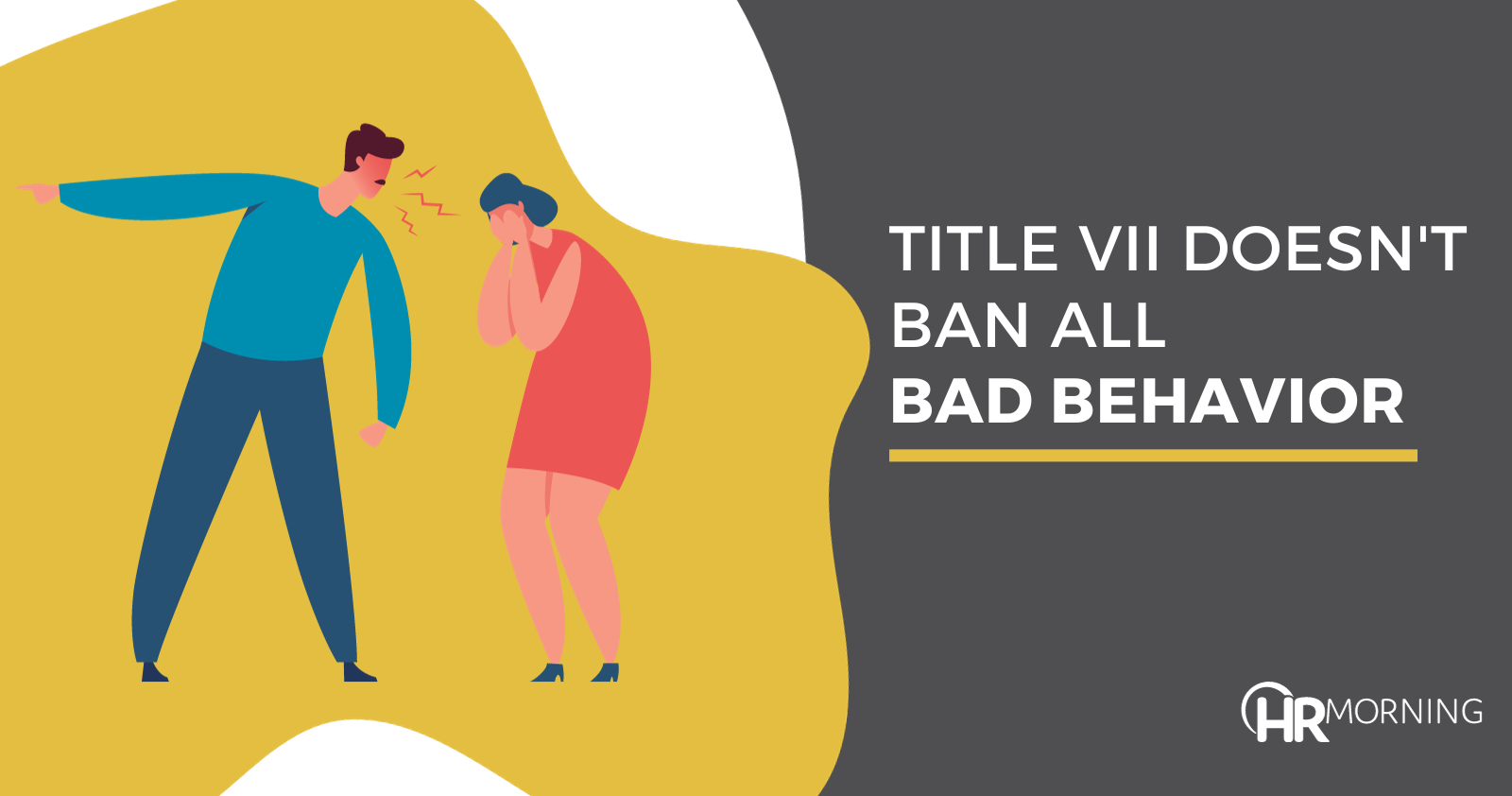There’s no law against being a jerk: Check out this new court ruling

There’s a big difference between mistreating an employee and mistreating an employee for a reason that the law prohibits.
In other words, there’s no law against just being a jerk.
In a perfect world, there would be no mistreatment at all. But in the real world, the truth is that an employer can escape legal liability by having a clear understanding of when employee mistreatment crosses the legal line.
A recent ruling from a federal appeals court demonstrates the point.
Black woman claims bias, hostile environment
Mary Harris, who is Black, worked as a nurse for Public Health Trust. Though her tenure there lasted for 10 years, she was ultimately terminated following a series of disciplinary actions.
Harris sued, alleging employment discrimination, hostile work environment and retaliation. A lower court ruled against her, and she appealed.
In support of her race discrimination claim, she said a supervisor told her that “blacks are lazy, and don’t like to work.” But that supervisor did not make the termination call, and another superior conducted her own investigation before making the decision to let Harris go.
In addition, supervisors who issued prior reprimands relied on their own investigations when doing so.
As a result, the appeals court said, the lower court properly rejected the claim of employment discrimination.
No illegally hostile environment
The appeals court next considered the hostile environment claim, which Harris said was supported by nine separate conditions or events. More specifically, she said that over the course of three years, supervisors:
- Made the highly offensive comment about laziness
- Restricted her access to a supply closet
- Micromanaged and excessively monitored her work
- Solicited peers to report her for violations
- Forced her to work with people who had histories of abuse
- Once poked her on the shoulder
- Wrongfully disciplined her
- Made her do more clerical work than her peers
- Did not adequately address her complaints of race discrimination.
The appeals court said the lower court properly declined to consider evidence relating to the third and fifth items. Those alleged actions took place outside a relevant limitations period, and they were not relevant background evidence or part of an ongoing hostile work environment. They happened before Harris began working at a different job location with new co-workers and supervisors.
What’s race got to do with it?
Next, the court considered the employer’s argument that several of the cited conditions or events had nothing to do with Harris’ race.
As the appeals court explained, “[F]ederal law doesn’t prohibit hostility in the workplace – only hostility caused by impermissible discrimination.”
It agreed with the employer that three of the alleged incidents were not shown to be race-based.
First, there was inadequate evidence that any discipline was racially motivated.
Second, there was no showing that the poke on the shoulder was based on race.
And third, there was no showing that Harris was denied access to the supply closet based on her race. In fact, she did not even allege that similarly situated white nurses were given access.
That left just five of the nine asserted discriminatory actions, which were not severe or pervasive enough to create an illegally hostile environment, the court explained.
Terrible, but not illegal
The alleged slur about poor work ethic was “ignorant and extremely demeaning,” the court acknowledged, but it was isolated and fell short of the kinds of remarks that have been found by other courts to create a hostile work environment.
There was not enough evidence to support Harris’ claim of a hostile work environment, the appeals court determined.
Finally, the appeals court upheld the lower court’s decision to reject Harris’ claim of unlawful retaliation. The employer said it disciplined Harris due to tardiness, absences and insubordination, and Harris offered “essentially no evidence” that she was not guilty of those offenses.
The lower court’s decision was affirmed.
Utopia vs. reality
Remember: While we all want a workplace that is entirely devoid of any type of employee mistreatment, federal law does not go so far as to prohibit all of it. In fact, many courts have noted that Title VII is not a general civility code for the workplace. Instead, it only bans discrimination based on specifically enumerated characteristics, including race, color, religion, sex and national origin.
When an employee complains of mistreatment, always consider whether the alleged conduct may have been based on a protected characteristic and thus may have violated the law.
Harris v. The Public Health Trust of Miami-Dade County, No. 21-11016 (11th Cir. 10/4/23).

